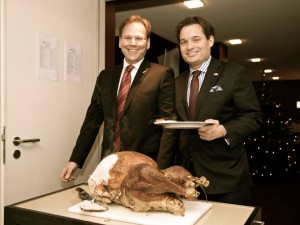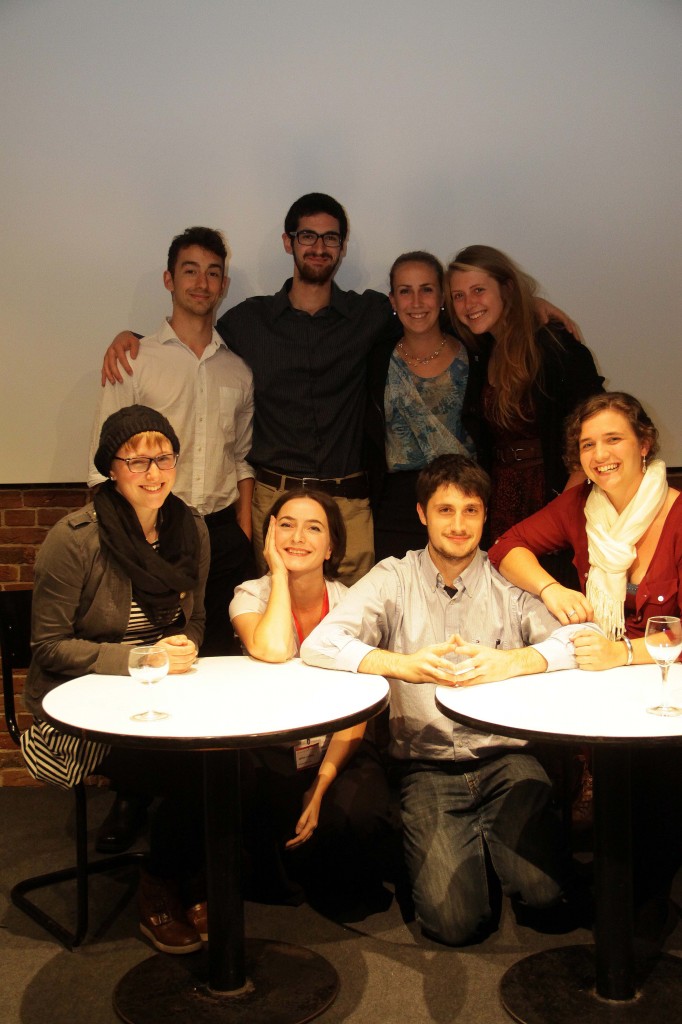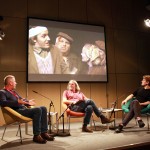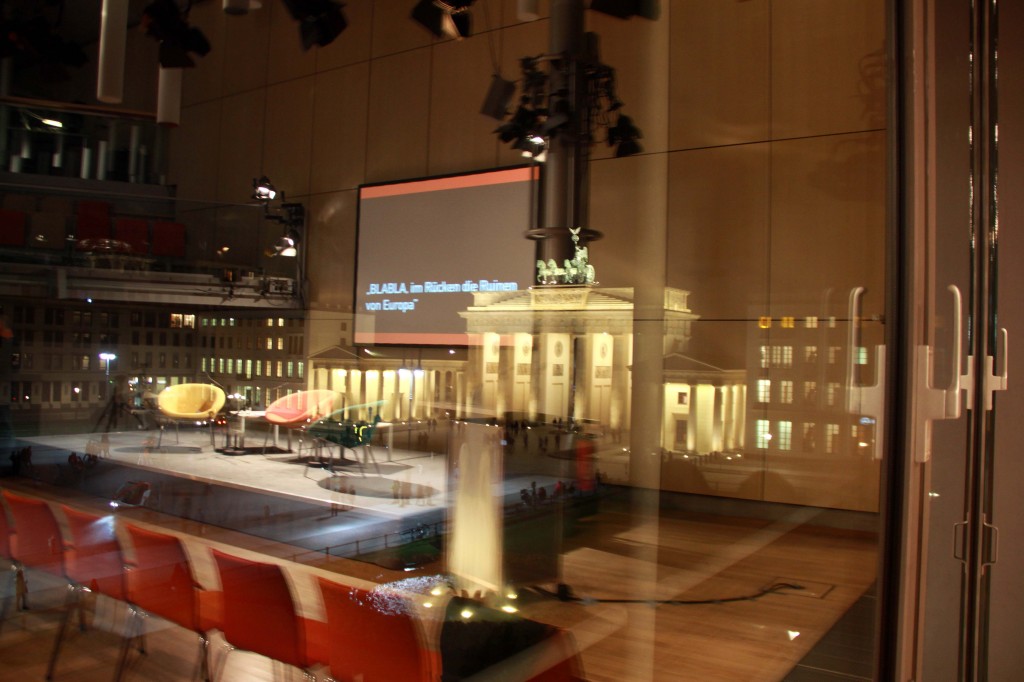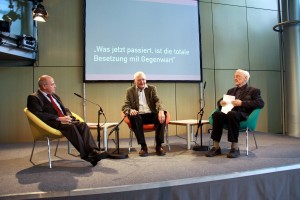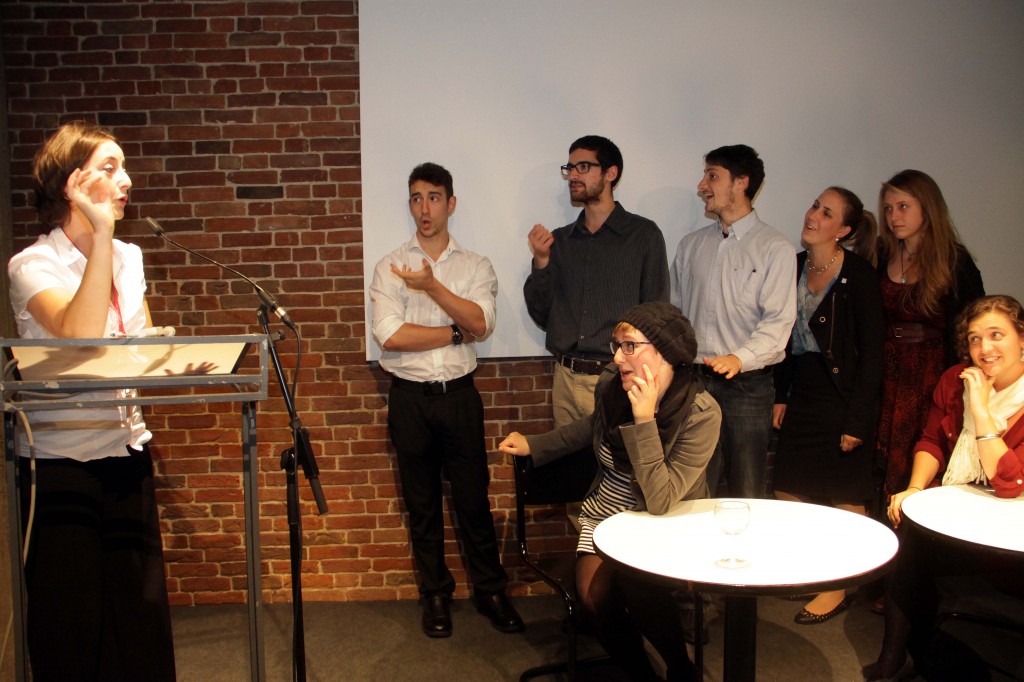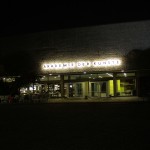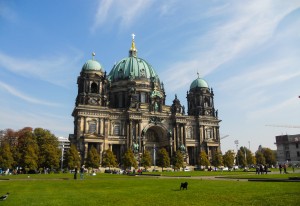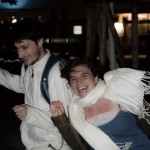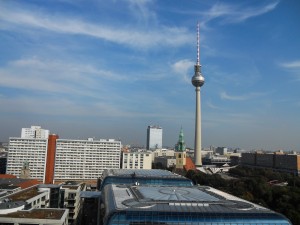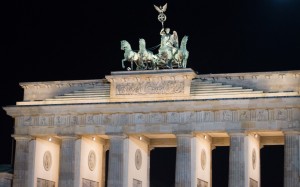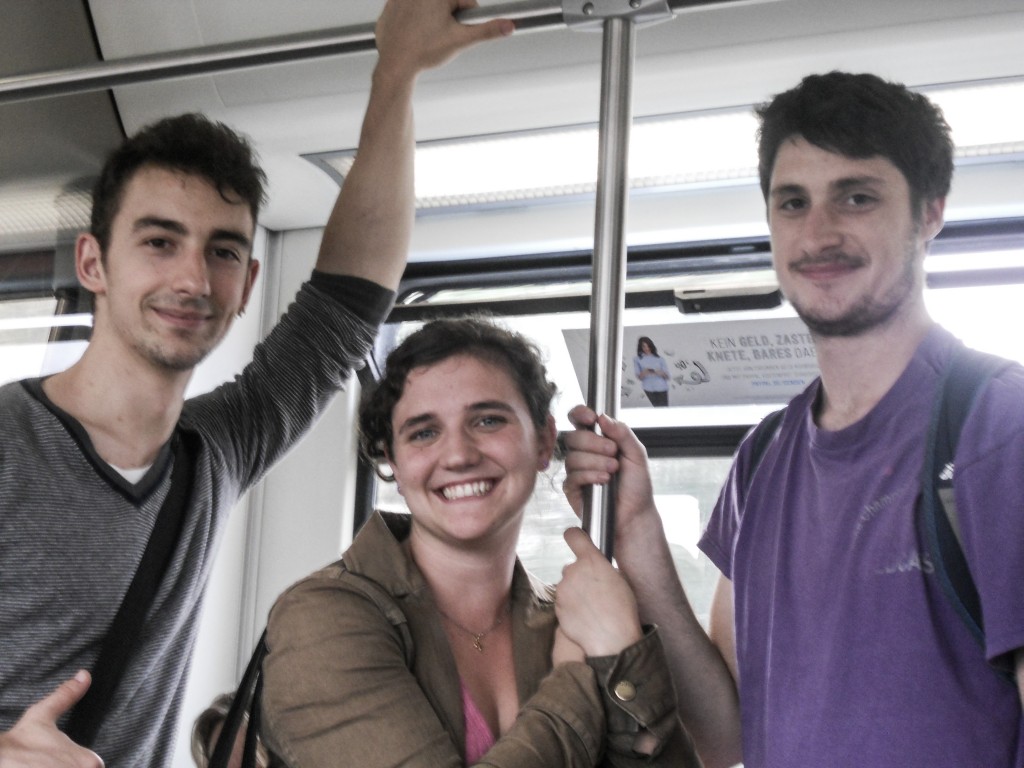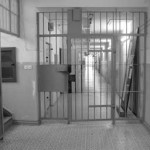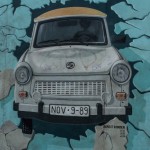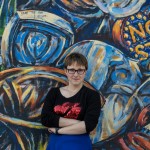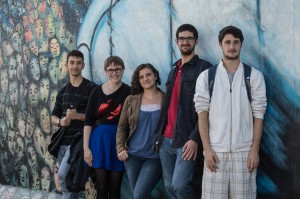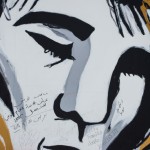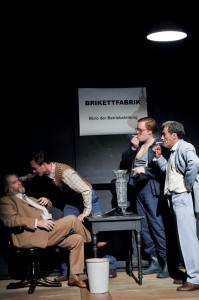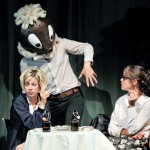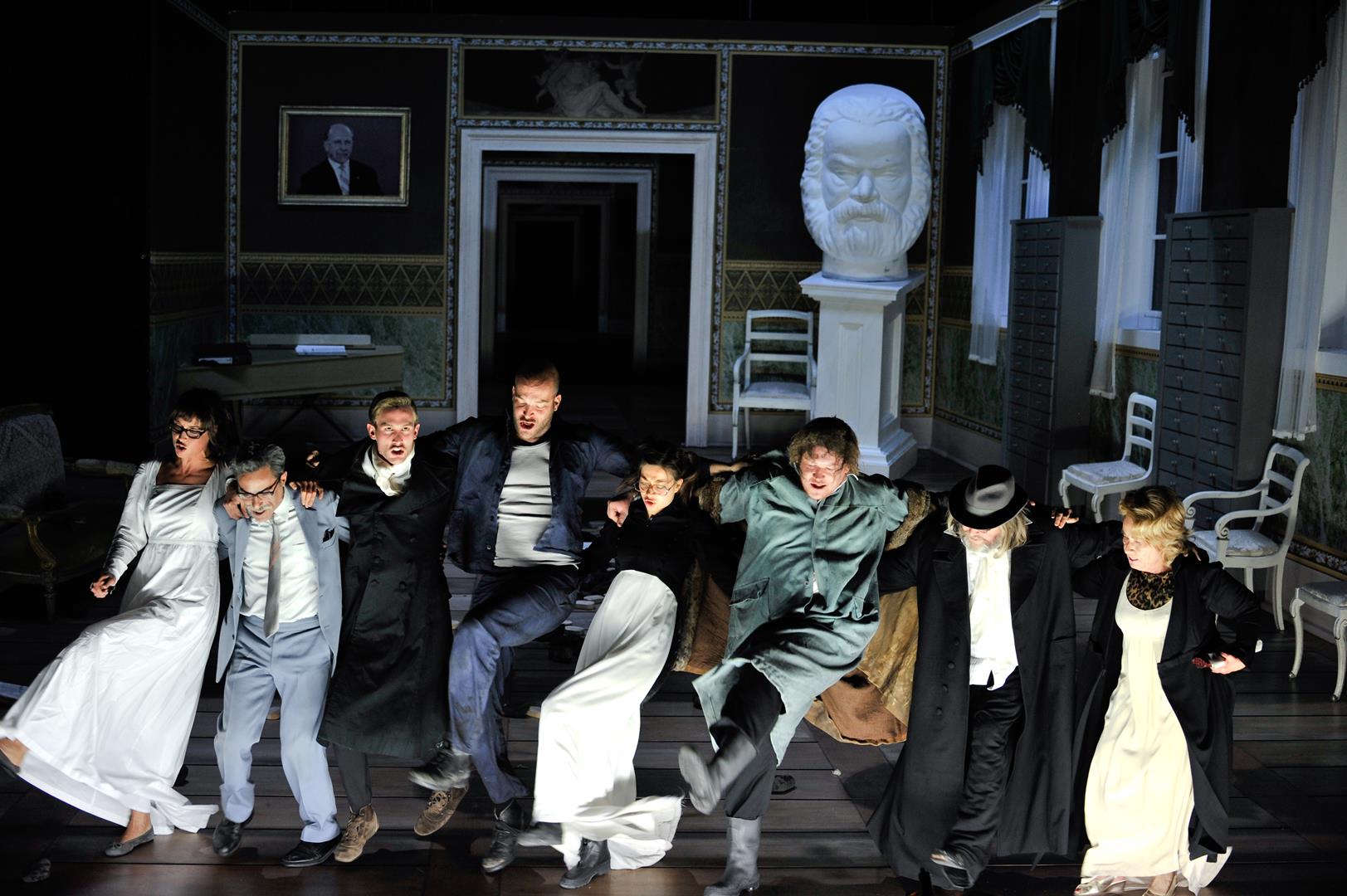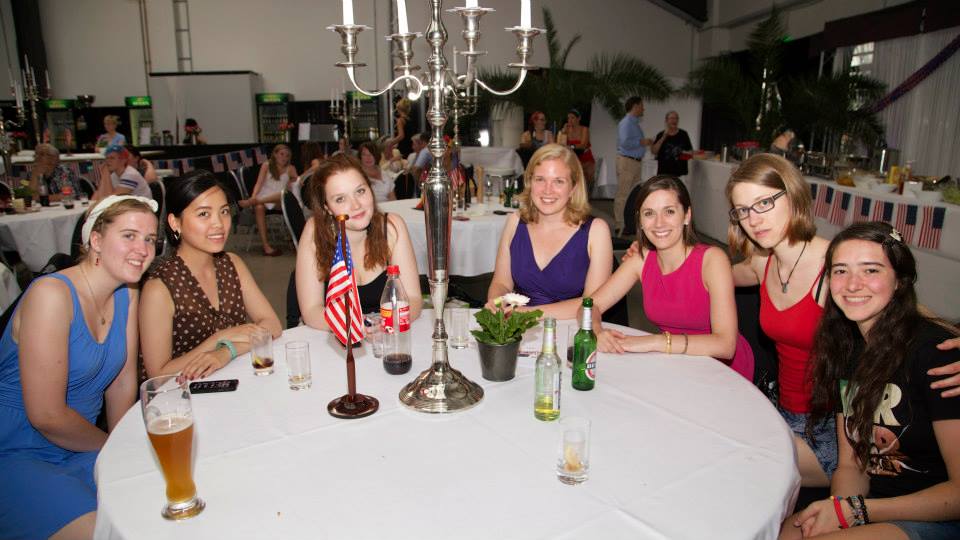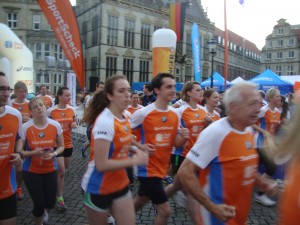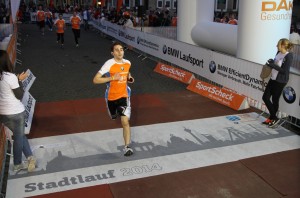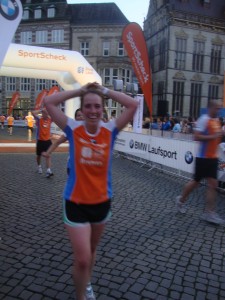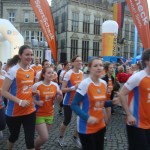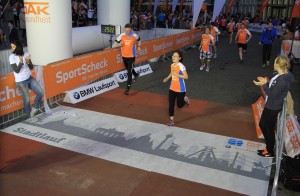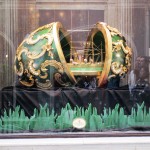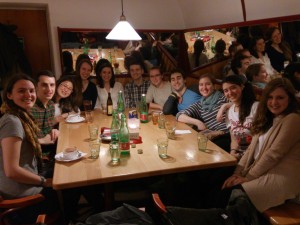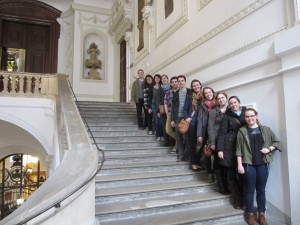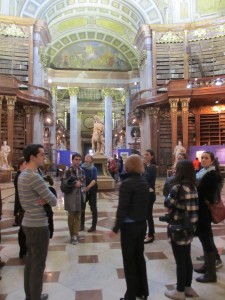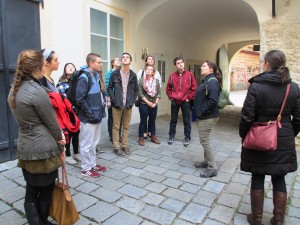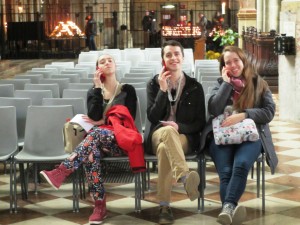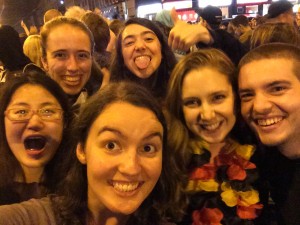 Want to relive Germany winning the World Cup? Then read the following statements by this year’s Dickinson-in-Bremen students as well as by Dr. Ludwig and Prof. McGaughey, who was in Germany as well, and also recaps our excursion to Hamburg and Lübeck. (Visit our Facebook page for additional video footage: Dickinson-in-Bremen on FB!)
Want to relive Germany winning the World Cup? Then read the following statements by this year’s Dickinson-in-Bremen students as well as by Dr. Ludwig and Prof. McGaughey, who was in Germany as well, and also recaps our excursion to Hamburg and Lübeck. (Visit our Facebook page for additional video footage: Dickinson-in-Bremen on FB!)
Joan:
I’m so happy I got to be in Germany for the World Cup — and feel so lucky to have seen them win too! The atmosphere in the city after each game was incredible, and only built as Germany advanced further. My favorite part would probably be after the games, when people would gather at one of the intersections in Viertel and just celebrate in the streets. Most of the time people would completely block the intersection with celebrating, chanting, and dancing. I had so much fun during the weeks of the World Cup and will never forget this experience.
Devon:
I knew throughout my trip to Germany that I was experiencing something unique and very much special; to be able to have watched my host country win the World Cup while here was simply the icing on the cake. While I was separated from the rest of the group, being in a crowded bar as the cheers erupted was truly sobering.
Shuwei:
We are certainly the lucky ones. After twenty-four years Germany became the World-Cup Champion again and we are here to experience all the stress, excitement and ecstasy. We celebrated on streets, danced and sang loud, and had high fives with people passing by. What a memorable experience! Cheers Germany!
Sean:
The World Cup excitement in Bremen was absolutely incredible once the Finale rolled around. I went to one of the larger public viewings in Bremen, despite the forecast of rain. By the time Mario Götze made the defining goal, we were all standing in a complete downpour. Not even rain could kill the mood after Germany won the World Cup. Hundreds of people quickly took to the streets and celebrated in the main intersection of Das Viertel and remained there until the early hours of the morning. It was one of the most memorable experiences of my year abroad. Deutschland ist Weltmeister!
Anna:
Even when the WM games were on weekday nights — whether at 6pm or midnight — the bars were packed and we would show up hours early (literally, three hours early to save seats for the final). The energy was just amazing and somehow got more intense every game, everyone on the edges of their seats (or standing) the whole time and alternatively gasping, leaning forward, cheering and jumping up and down in unison. And then when Germany won in the Finals, we were in Viertel, singing and dancing in the streets all night. It’s definitely an experience I’ll never forget!
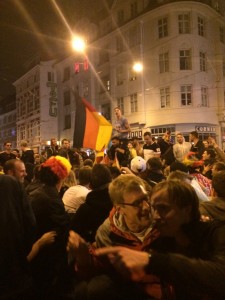 Margaret:
Margaret:
I’m still in disbelief over how lucky I was to be in Germany during the World Cup this year. Experiencing Germany’s victory was something I’ll never forget. I watched the final game with a group of other Dickinson students at a public viewing at a bar, where together we suffered through the seemingly-eternal nailbiter 0-0 score (and overtime! It really got rough…) before finally seeing Germany sink the winning goal shortly before overtime ran out, and jump to our feet cheering and hugging along with the rest of the crowd. When the game ended, we already knew the streets would be filled with people and the city basically shut down, but outside was even more insanity (and fun) than we could have expected. In the heart of the younger Viertel section of the city, the streets and sidewalks were filled so much we could barely walk, our ears rang from the fireworks being set off directly over our heads (or sometimes on sidewalks), and we got used to random people hugging, high-fiving us, or just yelling “DEUTSCHLAND!” or “WELTMEISTER!” in our faces. By 3 AM, we had joined the section of the crowd dancing to music being blasted from one of the overlooking apartments. There were block-long conga lines, instances of everyone putting their arms over each other’s shoulders and just happily swaying to the slower songs, and of course at least three separate heartfelt renditions of Queen’s We Are The Champions. I had a sore throat from yelling, sore feet from dancing in the street, and ringing ears from the fireworks, but I wouldn’t have traded that once-in-a-lifetime experience for anything.
Danette:
I had the good fortune of being able to watch the World Cup with several of my close German friends. They invited Janie and I over for the game to drink and watch. We were all decked out in fan gear with our faces painted with German flags and a German flag around our shoulders. As a huge football fan myself, this was the ultimate game for me. I watched breathlessly as the game ended in regular time at 0-0, and I think I was praying to every religious figure I could think of that Germany would win this game. Sadly our screen was delayed by about 2 minutes but I could hear cheers erupting around the neighborhood we were in, so I knew something good had happened. Then I watched Mario Götze receive the ball and volley it into the back of the net, I believe I almost cried because of how happy I was. There was still time left to play and never have I been so tense watching a game, I think I almost broke the chair handles because I was clenching them so hard. But then the whistle sounded and the game was over, GERMANY HAD WON. Janie and I knew that we needed to get into the city and quickly to have a great celebration with our friends; we boarded the next tram into the city and we hopped off at the Hauptbahnof. What a party it was. Trams and buses had stopped moving because they couldn’t get through the throngs of people, there were fireworks going off, people everywhere were yelling, chanting, dancing and cheering at the top of their lungs. It was insane. We made our way from Hauptbahnof to the Viertel and the party was even bigger. People were dancing in the streets, throwing beer around, and waving flags. It was an amazing experience to be a part of and something I will never forget.
Janie:
The night of the World Cup was, for me, absolutely unforgettable, and was one of my favorite memories of being in Germany. Danette and I watched the game at a close friend of ours, along with some other German friends. Naturally, we were all decked out in black, red, and gold to support the German national team. For some reason, probably because so many others were streaming the game online, there were delays, and we soon were a few minutes behind. We heard cheers outside, but still were not sure – and then Götze scored, and we all just yelled at the top of our lungs in pure joy. Then, the night got even better because Germany won, and it just truly felt like such a once-in-a-lifetime experience – being in Germany for the once-every-four-years cup, and then Germany won! Danette and I decided to continue the celebration outside, and went to the central train station. Absolute madness was ensuing there, with fireworks, and endless chants. From there, we walked to the “alternative quarter,” where it seemed like the entire population of Bremen had congregated. Everyone was out of their minds cheering, dancing, singing, and drinking, and there was a really awesome sense of friendly camaraderie. Even though we had to walk all the way home (about an hour and forty-five minutes), it was all so worth it, and it is definitely an experience I will never forget.
Dr. Ludwig:
Winning the World Cup is first and foremost: huge fun. The biggest party of the year. When Germans, often considered rather stiff, are dancing in the streets. But there is so much more to it: Soccer, or, Fußball/Football, as any European calls it, is not only the favorite German type of sport and a huge money-making machinery or a social glue that helps keeping the society together when young and old, men and women, people of all colors, backgrounds, and societal strata sit together in bars on weekends watching the Bundesliga or in public viewings of international tournaments… What is more, Fußball has often carried a national and historic dimension: When the Federal Republic of Germany won the first World Cup in 1954, it was called the “Miracle of Bern,” a symbol of the recovery of West Germany after WW II. Some linked it to the ambiguous phrase “Wir sind wieder wer” (We are somebody again.) When the GDR beat the FRG in the first round of the Cup in 1974, it was a symbol of the Cold War and an embarassment for West Germany which made up for it by winning the World Cup eventually. In 1990, when the rapidly uniting Germany won the Cup for the second time, with players from East and West, it was a symbol of reunification and its truest celebration. When the World Cup was held in Germany in 2006, the country took the chance to present itself as a pacified, liberal, open, and friendly society to the world and celebrated a 3rd place as if it was victory (something not really typical for Germans ;-). This was also the first time one could see national flags everywhere and hear the national anthem being sung in public – something that had been considered nationalist and dangerous for decades and was therefore seen with mixed emotions by many of the older generations. Winning the Cup for the 3rd time in 2014 does not have the same dimension anymore, but it rather seems like being world champions has healthily regressed into just something it would be for any nation: huge fun. The biggest party of the year. People dancing in the streets. Maybe that marks the true importance and experience of this victory.
Prof. McGaughey:
Distraction.
In the midst of a World Cup summer all activity that was not associated with soccer could be categorized under distraction. Distraction is what happened between games. In that time when you were waiting until the moment when you could reload the soccer site again and again with the hope of learning the lineup of the next game. Distraction was hard to come by, however. So much of the summer in Germany was about the World Cup. There were reports of the overpriced, island retreat of the German team in Brasil, the expensive stadiums, the corruption within FIFA, and the corruption and violence FIFA and soccer initiated in Brasil and throughout the world. And then there were the constant updates of the health of the team – could Schweinsteiger play? Was Hummels sick? The news was saturated with soccer scores and analyses and towns were full of public viewing sites, pulsing with conversations about the teams and the tournament. For games, the Germans sat or stood and watched ARD or ZDF – the two public channels – and heard passionate commentaries from former soccer stars Mehmet Scholl and Olli Kahn. Even during the advertising breaks, Pep Guardiola assured us that German engineering (or soccer?) was about innovation and “Vorsprung.” As the tournament went on and Germany continued to win (OMG, that historic game against Brazil!), the continuous presence of soccer in daily life became more difficult to take. Thus, my move from Tübingen to Bremen came at just the right time. Time to say “Moin” instead of “Grüß Gott” and time to see all of the Dickinsonians in Bremen. Even better, Verena had organized a short trip of two days and one night in the Hansestädte of Lübeck and Hamburg. We learned how to model mice and hearts out of marzipan and read about the tragedies and literary successes of the Mann family. We had a delicious dinner (fish, of course!) on the Inner Alster Lake on a boat (On a boat!) and wandered through the Fischmarkt on Sunday morning. We spent hours watching amazing moving miniature replicas of Switzerland, Austria, and Middle Germany and studied the miniature representations of party platforms from the last two elections. We drank excellent coffee. We spent an hour and a half moving blindly through daily spaces at Dialog im Dunkeln (Dialogue in the Dark). It was a fabulous trip. As the weekend trip came to a close and the second major soccer game of my lifetime approached, this all became distraction. Despite attempts to not discuss the game or soccer (there was a pact involved; it was agreed upon), the real focus was the game. Where were we going to watch it? Should we bring our backpacks home or just go straight to the Lagerhaus and take our seats? Arriving in Bremen only an hour and a half before the game began was taking a risk. We were late. Where do we find seats? Luckily, Joan had saved seats. Under a roof. At first, seemingly unnecessary, but after a huge storm hit mid-game, the (relatively) dry Dickinsonians were all the more thankful for Joan’s efforts. For all the focus on keeping ourselves distracted, I can’t tell you much about the game. It was fascinating and compelling, nerve-wracking and horrific (I mean, why wasn’t there a goal in the first half?!). But it all became a blur, when The Roar happened. Most people don’t call it “The Roar”. Most people refer to it as the goal made by Mario Götze in the 113th minute (yes, that’s overtime, if you don’t know soccer). But the lived experience I now call “The Roar.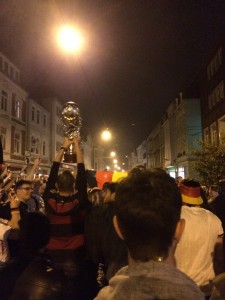 ” I couldn’t even hear myself screaming as I jumped up from my seat. And the roar was not just a moment; it repeated itself as the goal was replayed and everyone hugged one another. Only after the third or fourth replay did the roar become a rather large cheer. And then the cheering happened. The crowd, thousands of miles away from the game, wanted the German team to hold their ground. And so they cheered. The last minutes of the game became a resounding repetition of “Deutschland, Deutschland.” And then we won. The game was over. And we sang “Oh, wie schön” perhaps best translated as “Oh, how wonderful.” “Such a beautiful thing,” we all sang, “we had not seen in a long time.” A long time. And it was beautiful. Manuel Neuer told us we were world champions. And to celebrate we watched the ceremony and headed out onto the streets to celebrate more.
” I couldn’t even hear myself screaming as I jumped up from my seat. And the roar was not just a moment; it repeated itself as the goal was replayed and everyone hugged one another. Only after the third or fourth replay did the roar become a rather large cheer. And then the cheering happened. The crowd, thousands of miles away from the game, wanted the German team to hold their ground. And so they cheered. The last minutes of the game became a resounding repetition of “Deutschland, Deutschland.” And then we won. The game was over. And we sang “Oh, wie schön” perhaps best translated as “Oh, how wonderful.” “Such a beautiful thing,” we all sang, “we had not seen in a long time.” A long time. And it was beautiful. Manuel Neuer told us we were world champions. And to celebrate we watched the ceremony and headed out onto the streets to celebrate more.
 On Saturday, the 30th of November, the “Deutsch-Amerikanische Club” invited us again to their Thanksgiving Dinner in Atlantic Grand Hotel Bremen.
On Saturday, the 30th of November, the “Deutsch-Amerikanische Club” invited us again to their Thanksgiving Dinner in Atlantic Grand Hotel Bremen.
